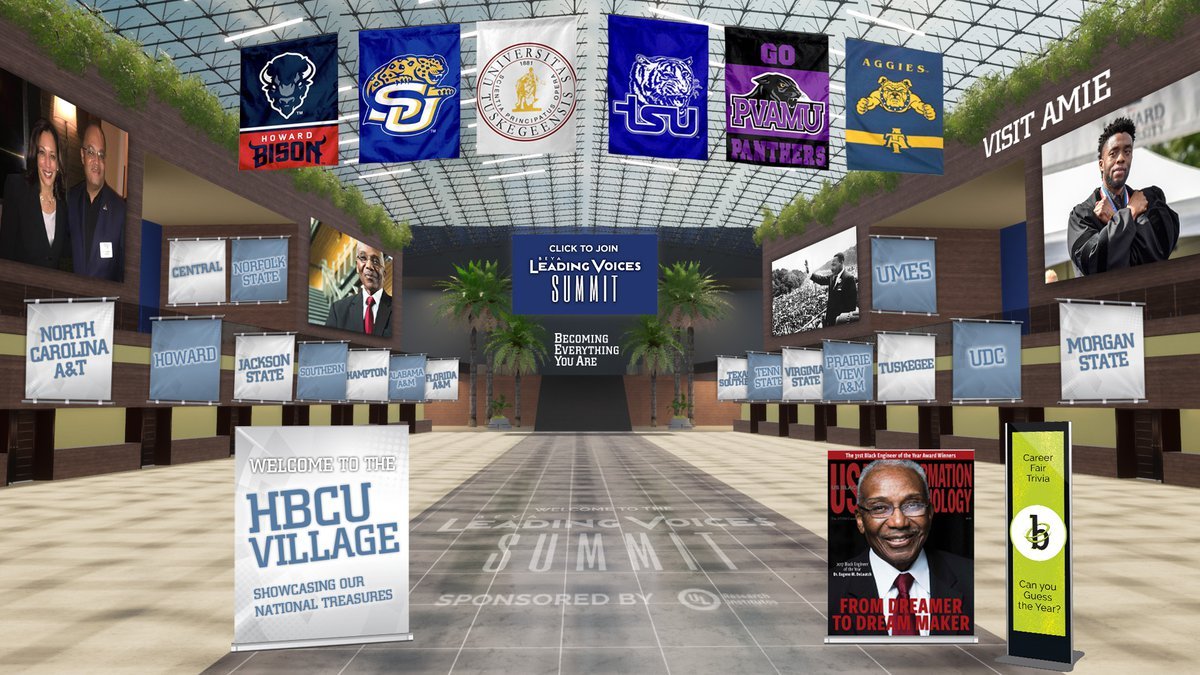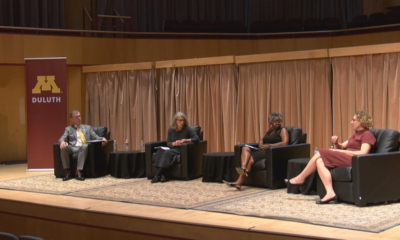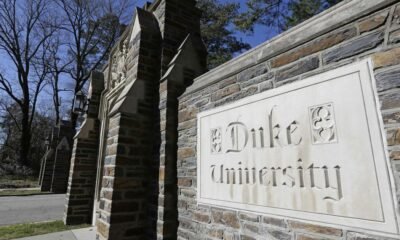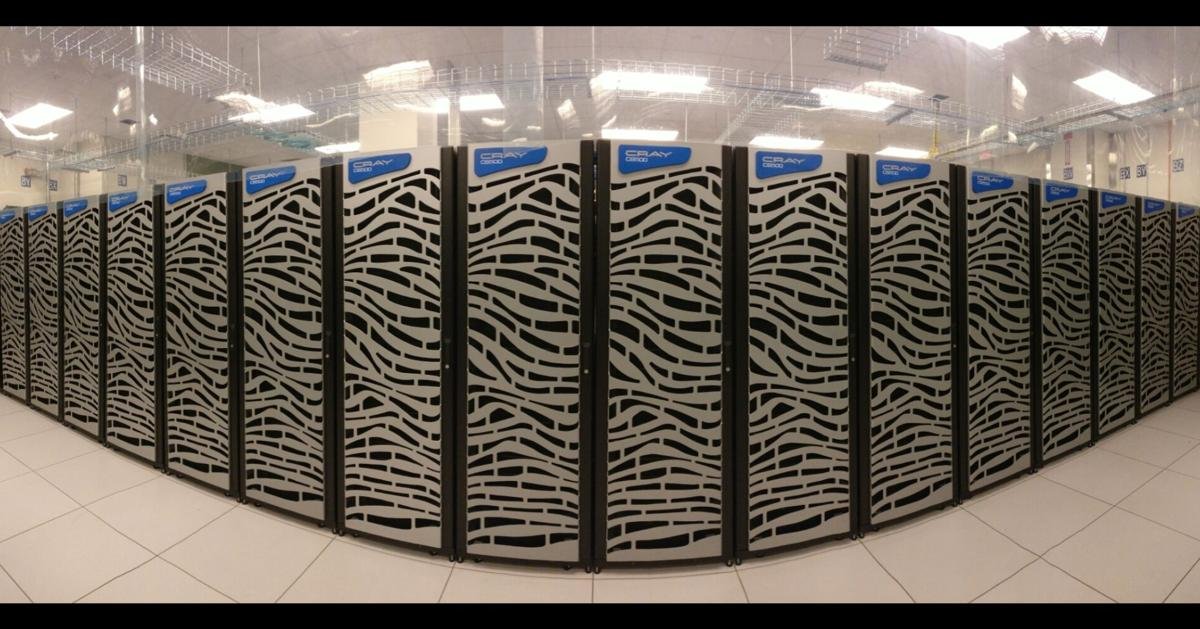Tools & Platforms
HBCUs in the AI Era

In the lead up to today’s artificial intelligence (AI) arms race, few institutions of learning have matched the vision and innovation of Historically Black Colleges and Universities (HBCUs).
As Dr. Emmanuel Lalande noted, HBCUs are not late to AI—they are “leaders in using algorithms, neural networks, and digital dashboards to turn historic exclusion into future empowerment.”
AI now leads every conversation across America. But HBCUs didn’t just join in. They have been integrating AI and machine learning into their computer science curriculum for decades.
Five years ago, while others debated the value of virtual reality, HBCUs demonstrated how immersive, intelligent environments could uplift learners, catalyze careers, and build resilient communities.
While much of the world hesitated at the edge of the digital unknown, HBCUs boldly entered the Metaverse, planting their flag with the launch of the HBCU Village in STEM City USA.
In partnership with Career Communications Group (CCG) and its pioneering platform STEM City USA, HBCUs launched the HBCU Village, an immersive environment inside the Educational Discovery Center.
The HBCU Village wasn’t just about presence in the Metaverse. It was a strategic prototype for what inclusive, AI-infused education could look like.
In 2020, when global uncertainty loomed and universities struggled to pivot, for HBCUs—long experienced in doing more with less—this was not disruption. HBCUs were already investing deeply in AI research, workforce development, and cross-sector partnerships—positioning themselves not only as participants in the fourth industrial revolution but as architects of its equity-driven future.
From the Metaverse to Machine Learning, it was a legacy of bold moves.
The HBCU Village in STEM City wasn’t just a virtual campus; it was a radical redesign of how culture, education, and community could intersect in 3D space with digital twin campuses of iconic HBCUs, AI-enhanced learning modules tailored for STEM disciplines, live-streamed mentorships, virtual career fairs, and interactive labs bridging students with industry leaders and federal agencies.
The HBCU Village wasn’t just about presence in the Metaverse. It was a strategic prototype for what inclusive, AI-infused education could look like: Students explored cybersecurity simulations and digital twin urban planning scenarios, faculty held workshops on ethical AI, data justice, and algorithmic accountability, and AI-powered chatbots helped guide students through academic and career navigation—years before mainstream higher education adopted similar tools. This fusion of AI, immersive media, and culturally rooted design has now influenced digital equity frameworks across industries and agencies.
The HBCU Village was powered by the same AI engines now shaping national defense, healthcare, and workforce readiness.
HBCUs didn’t wait for permission. They didn’t ask for validation. They simply built. Leading voices such as Dr. James DeBardelaben, who has decades of experience providing solutions to the defense and intelligence communities, have proposed initiatives such as an HBCU-based AI Centers of Excellence, AI-focused national security pipelines with clearance sponsorship, and AI-driven, project-based curricula aligned with defense and public sector needs.
AI must reflect the diversity of experience, said Dr. DeBardelaben. And there’s no better place to shape that future than the halls of our HBCUs.
As the U.S. accelerates its AI capabilities, the untapped potential of HBCUs is being recognized: HBCUs produce a critical mass of U.S.-citizen STEM graduates—ideal for AI jobs that require national security clearance. Deans and industry leaders now advocate for government-funded clearance programs, starting as early as sophomore year. The Department of Defense and National Science Foundation have already increased partnerships for AI innovation in cybersecurity, logistics, and predictive analytics.
Now, as the world races to keep up with the demands of the AI age, the rest of the nation would do well to ask: What can we learn from HBCUs?
HBCU-Driven AI Highlights you should know include Morgan State University’s $9 million investment to scale AI and machine learning research, Alabama A&M University’s Laboratory for Deep Learning, backed by a $480,000 grant from the Army Research Office, Southern University and A&M College collaboration with IBM to develop AI solutions addressing public safety, air quality, and transportation challenges., and Norfolk State University hosting national forums such as the Research and Innovation Symposium (RISE) with Brookings Institution, addressing AI’s role in equity and national strategy.
Looking ahead to 2030, these are the imperatives for building on the momentum:
- Expand access to AI and immersive learning from K–12 through PhD levels
- Fund and federate AI Centers of Excellence across HBCU campuses
- Codify Metaverse-based learning as part of a federal workforce strategy
- Build policy frameworks for ethical, equitable AI development—grounded in HBCU research
For interviews, data requests, or partnership inquiries related to this article or ongoing AI/Metaverse initiatives at HBCUs, please reach out to:
- Tyrone D. Taborn – Publisher, USBE Magazine 📧 ttaborn at cgmag.com
- Dr. James DeBardelaben – AI and National Security Advisor 📧 jdebardelaben at hbcuvanguard.org
- Dr. Robin N. Coger – Provost, East Carolina University (Former Dean, N.C. A&T Engineering) 📧 rcoger at ecsu.edu
- Shawna Stepp-Jones – Founder, Divaneering Foundation 📧 shawna at divaneering.org
Further Reading & Resources:
Tools & Platforms
AI will reshape internet, create jobs in West Virginia says High Technology Foundation's Estep – WV News
Tools & Platforms
Nvidia says GAIN AI Act would restrict competition, likens it to AI Diffusion Rule

Short for Guaranteeing Access and Innovation for National Artificial Intelligence Act, the GAIN AI Act was introduced as part of the National Defense Authorization Act and stipulates that AI chipmakers prioritize domestic orders for advanced processors before supplying them to foreign customers.
“We never deprive American customers in order to serve the rest of the world. In trying to solve a problem that does not exist, the proposed bill would restrict competition worldwide in any industry that uses mainstream computing chips,” an Nvidia spokesperson said.
If passed into law, the bill would enact new trade restrictions mandating exporters obtain licenses and approval for the shipments of silicon exceeding certain performance caps.
“It should be the policy of the United States and the Department of Commerce to deny licenses for the export of the most powerful AI chips, including such chips with total processing power of 4,800 or above and to restrict the export of advanced artificial intelligence chips to foreign entities so long as United States entities are waiting and unable to acquire those same chips,” the legislation reads.
The rules mirror some conditions under former U.S. President Joe Biden’s AI diffusion rule, which allocated certain levels of computing power to allies and other countries.
The AI Diffusion Rule and AI GAIN Act are attempts by Washington to prioritize American needs, ensuring domestic firms gain access to advanced chips while limiting China’s ability to obtain high-end tech amid fears that the country would use AI capabilities to supercharge its military.
Last month, President Donald Trump made an unprecedented deal with Nvidia to give the government a cut of its sales in exchange for resuming exports of banned AI chips to China.
Tools & Platforms
Apple sued by authors over use of books in AI training

The proposed class action, filed in the federal court in Northern California, said Apple copied protected works without consent and without credit or compensation.
“Apple has not attempted to pay these authors for their contributions to this potentially lucrative venture,” according to the lawsuit, filed by authors Grady Hendrix and Jennifer Roberson.
Apple and lawyers for the plaintiffs did not immediately respond to requests for comment on Friday.
The lawsuit is the latest in a wave of cases from authors, news outlets and others accusing major technology companies of violating legal protections for their works.
Artificial intelligence startup Anthropic on Friday disclosed in a court filing in California that it agreed to pay $1.5 billion to settle a class action from a group of authors who accused the company of using their books to train its AI chatbot Claude without permission.
Anthropic did not admit any liability in the accord, which lawyers for the plaintiffs called the largest publicly reported copyright recovery in history.
In June, Microsoft was hit with a lawsuit by a group of authors who claimed the company used their books without permission to train its Megatron artificial intelligence model. Meta Platforms and Microsoft-backed OpenAI also have faced claims over the alleged misuse of copyrighted material in AI training.
The lawsuit against Apple accused the company of using a known body of pirated books to train its “OpenELM” large language models.
Hendrix, who lives in New York, and Roberson in Arizona, said their works were part of the pirated dataset, according to the lawsuit.
-

 Business1 week ago
Business1 week agoThe Guardian view on Trump and the Fed: independence is no substitute for accountability | Editorial
-
Tools & Platforms4 weeks ago
Building Trust in Military AI Starts with Opening the Black Box – War on the Rocks
-

 Ethics & Policy1 month ago
Ethics & Policy1 month agoSDAIA Supports Saudi Arabia’s Leadership in Shaping Global AI Ethics, Policy, and Research – وكالة الأنباء السعودية
-

 Events & Conferences4 months ago
Events & Conferences4 months agoJourney to 1000 models: Scaling Instagram’s recommendation system
-

 Jobs & Careers2 months ago
Jobs & Careers2 months agoMumbai-based Perplexity Alternative Has 60k+ Users Without Funding
-

 Education2 months ago
Education2 months agoVEX Robotics launches AI-powered classroom robotics system
-

 Podcasts & Talks2 months ago
Podcasts & Talks2 months agoHappy 4th of July! 🎆 Made with Veo 3 in Gemini
-

 Funding & Business2 months ago
Funding & Business2 months agoKayak and Expedia race to build AI travel agents that turn social posts into itineraries
-

 Education2 months ago
Education2 months agoMacron says UK and France have duty to tackle illegal migration ‘with humanity, solidarity and firmness’ – UK politics live | Politics
-

 Podcasts & Talks2 months ago
Podcasts & Talks2 months agoOpenAI 🤝 @teamganassi






















